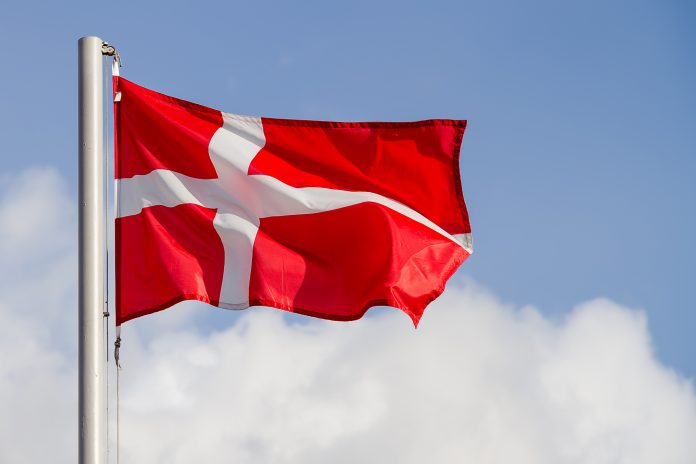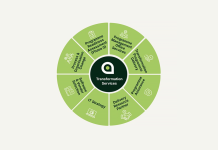Richard Davies, UK Country Managing Partner, Netcompany turns the spotlight on Denmark, an excellent blueprint for becoming a digitised society
In 2021, Denmark was ranked 1st as the most digitised society, out of the 27 EU member states. Today it leads the way in connectivity with 94% of households attached to very-high-capacity networks and boasts one of the highest living standards with citizens enjoying digital services which a few years ago would have seemed impossible.
Not only is Denmark one of the leaders in digital public services with high levels of interaction between businesses, the public and all levels of government, but more than half of Danish enterprises use e-invoices and cloud services. As a result, Denmark is now viewed as one of the most advanced and successful Govtech countries in the world.
So how and why has it become the frontrunner in successfully digitising society?
The Denmark Agency for Digitisation (part of the Ministry of Finance) has been the driving force enabling the country to reach its ambitious targets. Set up in 2011, the agency was charged with the government’s digitisation policies. With the aim of renewing the Danish welfare state, the agency is responsible for the implementation of the government’s digital ambitions and the use of digital welfare technology in the public sector.
An all-inclusive digitised society strategy
Danish digital ambitions were large-scale and highly inclusive, with all levels of government, from central government to regions and municipalities involved. This encompassed both the administrative institutions such as ministries, agencies, public sector institutions, and municipal and regional administrations, as well as hospitals, schools, universities and more.
The Danish digital transformation effort is based on recognition of a unique common responsibility to embrace the digital mindset and the vision of a digital public sector with citizens and the private sector a key partner in this process. For the Danes everyday life is digital. This means the public sector is fast becoming completely digital and digitisation is a prerequisite for today’s modern welfare society – creating a coherent, accessible, and citizen-focused environment.
One of the big wins of the Danish digitisation efforts is the provision of a single digital communications platform for all official letters sent to citizens and businesses. Since November 2014, it has been mandatory for citizens over the age of 15 to receive digital communications from the public sector. Furthermore, it is mandatory for citizens and authorities in Denmark to use digital solutions to communicate in writing with the public sector.
Clear direction for digitisation
This formed part of the Danish Agency for Digitisation’s Digital Strategy 2016-2020 which provided clear direction with four main goals:
- The use of public digital services must be easy, fast, and of high quality.
- Public sector digitisation must provide good conditions for growth.
- Security and trust must be at the centre.
- Support democratic and social challenges to ensure that everyone has equal means and ways to access and use public services.
This involved ensuring, for example, a more user[1]friendly and coherent user-journey when several public authorities at different levels of government were involved. Moreover, the government launched a new strategy for ICT management in central government aimed at improving management of existing operational ICT solutions.
Today more than 250 critical digital society solutions have been delivered, all based on componentised modern technology. This involved replacing legacy technology and combining digital components to create new ones, utilising a vast library of scalable software components.
Changing society for good
This is the way that the Danish government has been able to accelerate initiatives and change society for good. For example, Sundhed.dk, is the Danish e-health portal for public healthcare services. It enables both citizens and healthcare professionals to find patient[1]centred data, information and to communicate. Another example is Borger.dk, a one-stop national portal, where citizens are able to access any information at any place and time, thereby reducing administrative costs and improving public services. The skat-dmr is the platform for the Danish Register of Motor Vehicles. This has reinvented ways to handle applications for drivers’ licenses, distribute license plates and collect tax.
The importance of data
The key to modernisation is the use of basic data. This is fundamental data that is common for many purposes such as addresses, dates of birth, National Insurance numbers, etc. Establishing a common basic data infrastructure for public sector administration which can be updated in one place, is of huge societal benefit. It means that the public no longer has to re[1]type the same information every time they use a public self-service solution and, in turn, makes for a smoother transition for public-sector employees to work more efficiently.
For example, a first of its kind, is an advanced data warehouse solution that enables a new level of transparency in the Danish educational system by providing reliable behaviour and performance data from schools across 98 municipalities.
These digital solutions are helping
Danish citizens throughout their life journey from the day they are born, through to their education, as they enter the job market and into every day life, and when they need social and healthcare support. Future recommendations from the EU Commission Looking to the future, the EU Commission has recommended measures to ensure that countries look to secure a resilient healthcare system whilst continuing to strengthen their digital infrastructure and enhance climate action.
These measures are key to Denmark’s ongoing success and the government is continuously working with, and consulting with, organisations and stakeholders in both the public and private sectors in order to best determine the strategy necessary for a future digital Denmark. To this end, in Spring 2021 the Danish Authority launched the Digitisation Partnership. Members include senior-level executives and experts from the business community, the research community, civil society and social partners, and local government. This initiative has already made 46 recommendations for Denmark to continue to be viewed as a digital pioneer around the world.
Digital transformation is not a ‘one and done’ initiative but a journey that requires ongoing development. This means that questions need to be asked around how data can be used, projects prioritised, and Denmark needs to consider how it will take advantage.











